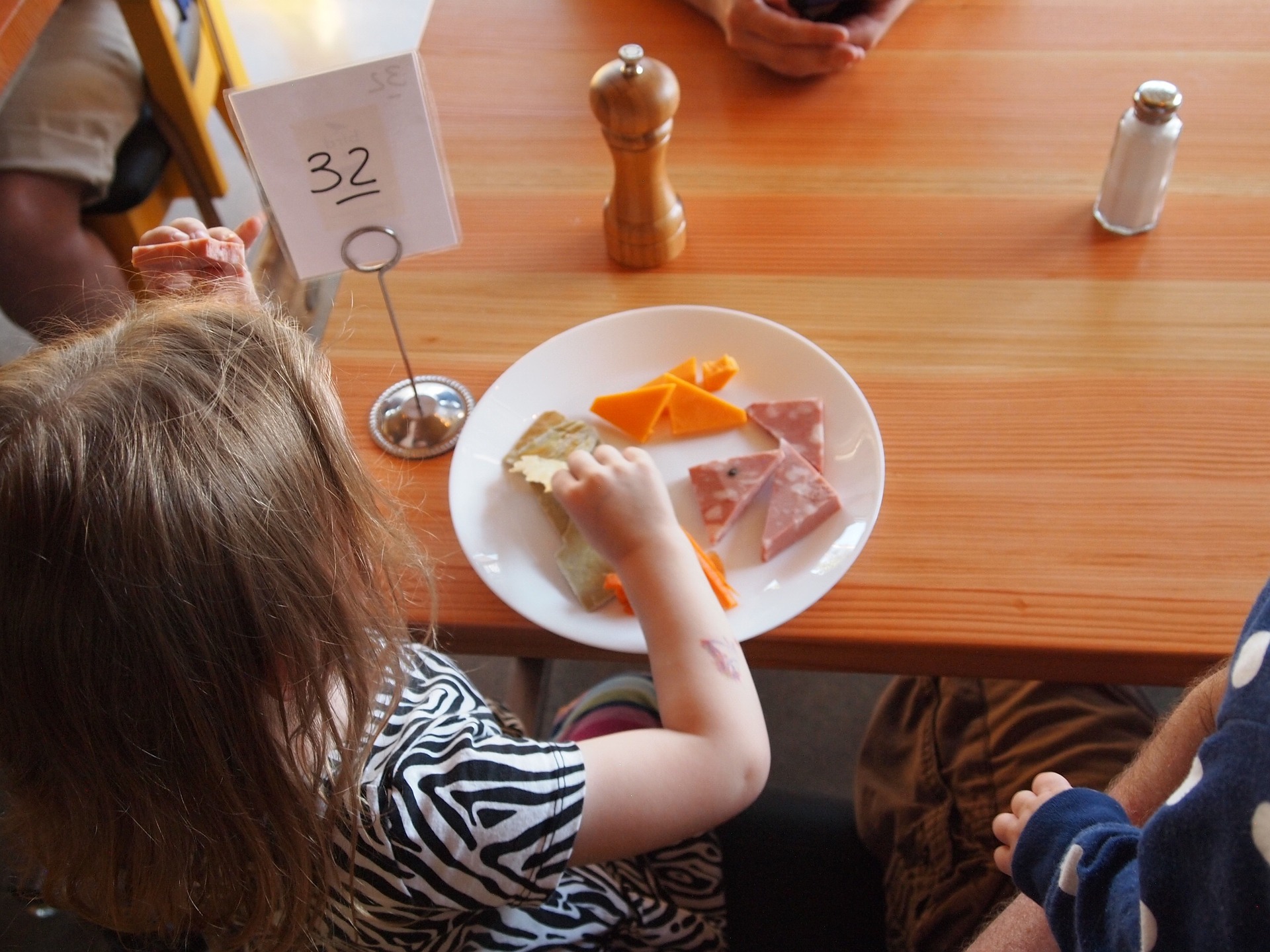On this week's 'Parenting' segment on the Moncrieff show, one listener sought advice on what to do with her daughters, aged two and four, who won't settle down and eat their food at mealtimes.
Joanna Fortune, a psychotherapist specialising in child and adult psychotherapy, offered some guidance.
Listener question
My two-year-old and four-year-old girls won't sit down at the dinner table to eat any meal. Hyperness levels increase and it results in raised tensions as my husband and I get cross with them.
They barely or take forever to eat their meals even if we don't give them anything for an hour and a half beforehand and generally messing takes place, like playing house under the kitchen table, standing up on chairs and screeching at each other.
We are trying to create a more positive experience for all and it's turning into a stressful experience each time. We've tried lots of coaxing to be good, bribery of getting a treat after dinner if they eat.
But my two-year-old obviously has no concept of what this means. Any advice or tips?
Joanna Fortune's advice
"The downside is that the girls are at an age where there are so much more interesting things in their world than sitting at the table and eating a meal together. It can be hard for them to switch off. I wonder how you're flagging to them that mealtime is coming? Or are they in the middle of this vigorous, robust play and then you go, 'Hey, dinnertime'.
"That's a big jump, especially at this age, to go from play to sit down so there could be a few practical things you could do around flagging or cueing them that dinnertime is coming, soon we will be sitting down, without having to say it. You could have them lay out the mats, put the cutlery on, you're never going to get the knife and fork in the right place but pick your battles. Involve them in appropriate ways with meal prep.
"Could they be playing with the veggie peelings while you're cooking, could that be a part of their play? Because all of that is cueing them that dinner is coming, mealtime is coming. And then when you set the table, you could consider a paper tablecloth or covering their area with a piece of art paper or wallpaper lining, and give them crayons and let them draw or play on their area while they sit.
 File photo. Credit: EdMontez from Pixabay
File photo. Credit: EdMontez from Pixabay"You could sing songs while you all sit together, you could sing songs of what you're doing. Children love rhythm, it helps to regulate them emotionally. Share what was the best bit of your day, what was the bit you'd like to change. Keep the mealtime playful and engaging so that it is meeting their needs because it's not their developmental task to sit down and eat quietly and listen to everyone talking and do turn-taking, they're too young.
"And these are busy kids, they just sound quite busy. You could also do a bit of a timing that everyone must sit at the table and eat for a set time. You could use a visual sound timer for that, you can set those in five minutes, 15 minutes, 30 minutes is optimistic so I would go with 15 or 20-minute timers. If they sit and eat, the amount they are going to eat, the speed they can eat at if they're motivated, 15 minutes could be better than an hour and a half of cajoling to eat without getting anything done.
"You could do that, and make food fun even by putting it on the fork and have two forks talk to each other. I know that sounds like a lot of work at the table but these parents are already working a lot, you're working to get them to sit, you're working to get them to be quiet, you're working to get them to eat, this is just working in a different way that's more playful and is more likely to elicit the behaviour you want to see, rather than constantly flagging the behaviour you don't want to see."









